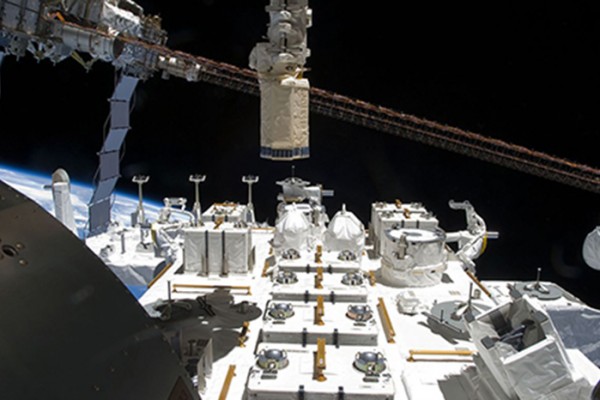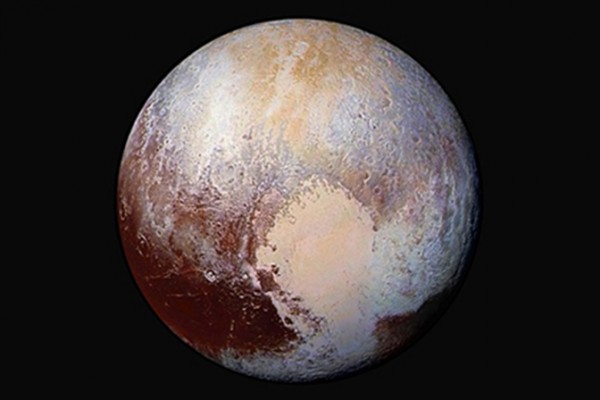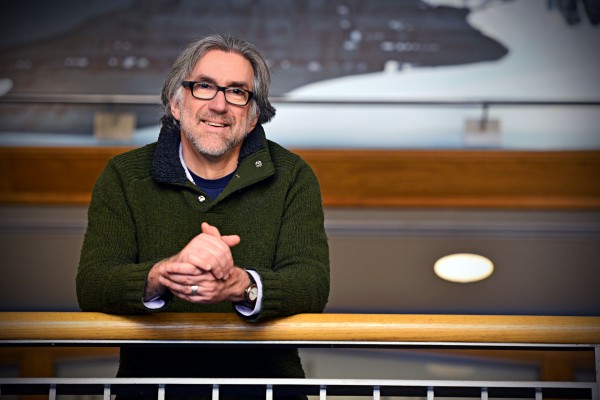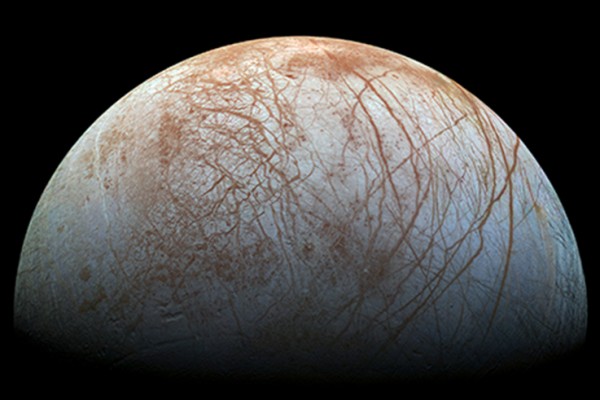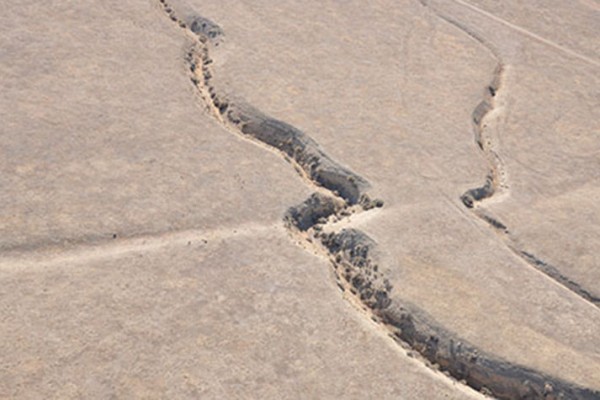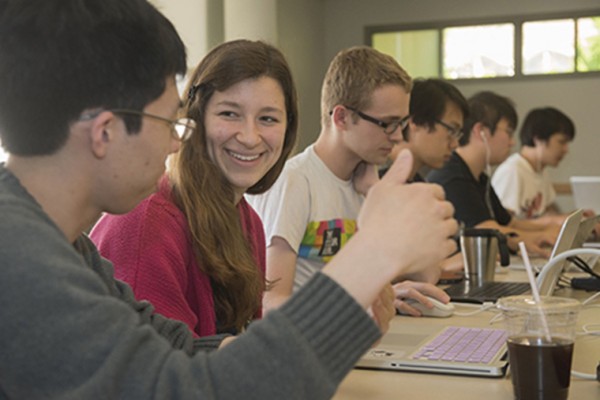Blake Thornton: No. 1 standup paddleboarder
Washington University in St. Louis mathematician Blake Thornton, PhD, came in first in the paddleboard division of the MR340, an endurance race on the Missouri River. Before signing up for next year’s race, you might want to read this article as well as watch the video.
High-energy observatory launches this week
On Wednesday, Aug. 19, at 8:15 a.m. St. Louis time, NASA TV will begin broadcasting the launch of a cargo container at the Tanegashima Space Center off the southern coast of Japan. In addition to water and spare parts, the cargo container will carry CALET, an astrophysical observatory designed to study the high-energy cosmos.
It’s alive, it’s alive!
It was bedlam at mission control when the first images of Pluto came down over the Deep Space Network. Not only were there few craters, but some areas of the planet were smooth as a billiard ball and others rumpled and rippled; some stained the color of dried blood and others gleaming bright white. The variety meant that there was geology on Pluto, alien though the
geological processes might be to earthlings.
Rough guide to Pluto-watching with Bill McKinnon
New Horizons will fly through the Pluto system on July 14 at an angle of 46 degrees to the plane of the dwarf planet’s orbit, then turn to use sunlight reflected from Charon, Pluto’s biggest moon, to image areas of Pluto now in continuous darkness. Your host for the WashU Pluto watching party will be Bill McKinnon, a planetary scientist at Washington University in St. Louis, who will be commenting from mission headquarters at the Johns Hopkins University’s Applied Physics Laboratory in Maryland.
Europa, here we come
Scientists have been itching to go to Europa for a long time because this moon is thought to have a global ocean beneath an outer shell of ice — an ocean that may be hospitable to life. In May, NASA took the first step, selecting nine instruments to fly on a mission to Europa. Washington University’s William McKinnon, on the science team for two of the instruments, talks about the mission.
Obituary: James ‘Ely’ Shrauner, professor emeritus of physics, 82
James “Ely” Shrauner, PhD, a theoretical particle physicist and professor emeritus at Washington University in St. Louis, died from complications of Parkinson’s disease Monday,
June 1, 2015, in Chesterfield, Mo. He was
82.
Do cheaters have an evolutionary advantage?
What is it with cheating? Cheaters seem to have an immediate advantage over cooperators, but do they have an evolutionary advantage? A study published in Current Biology suggests the benefits of cheating change with its prevalence,in a population. Cheaters may succeed, for example, only when they are rare, and fail when they become so numerous they push out cooperators.
WashU seismologist who loves disaster movies reviews ‘San Andreas’
A Washington University earthquake seismologist who is teaching a course on natural disasters in movies reviews the newly released film “San Andreas.” The short version: they clearly didn’t have a seismologist consulting on this film. The take home message: Go see it anyway. It’s summer.
Their classroom is the desert
The hallmark of the 18-month Pathfinder Program in Environmental Sustainability at Washington University in St. Louis is the field trips to ecosystems, such as the Mojave Desert, that give students the chance to see and touch the land they have been studying. It’s hard to get the students back in the van, says Ray Arvidson, who leads the program.
Massively parallel biology students
The list of authors for an article on the comparative genomics of a fruit fly chromosome, published online May 11 by the journal G3, includes 940 undergraduates from 63 institutions. It is the result of an effort, coordinated through Washington University in St. Louis, to provide many more students with a hands-on research experience than has traditionally been possible.
View More Stories

